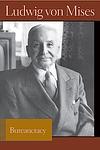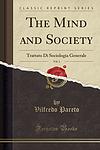The Greatest Italian, Austrian "Nonfiction, Political" Books Since 1900
Click to learn how this list is calculated.
This list represents a comprehensive and trusted collection of the greatest books. Developed through a specialized algorithm, it brings together 305 'best of' book lists to form a definitive guide to the world's most acclaimed books. For those interested in how these books are chosen, additional details can be found on the rankings page.
Genres
The "Political" category of books encompasses works that explore the theory, practice, and history of government and politics. These books may cover topics such as political ideologies, political systems, political institutions, political movements, and political leaders. They may also examine the relationship between politics and other areas of society, such as economics, culture, and international relations. Political books can be both informative and thought-provoking, offering readers insights into the complexities of the political world and the challenges of governing in a democratic society.
Countries
Date Range
Reading Statistics
Click the button below to see how many of these books you've read!
Download
If you're interested in downloading this list as a CSV file for use in a spreadsheet application, you can easily do so by clicking the button below. Please note that to ensure a manageable file size and faster download, the CSV will include details for only the first 500 books.
Download-
1. The Road to Serfdom by Friedrich von Hayek
"The Road to Serfdom" is a classic work of political philosophy and economics that argues against the concept of socialism and centralized economic planning. The author asserts that such systems inevitably lead to totalitarianism, infringing upon individual liberties and stifling innovation. The book further posits that only through free-market capitalism can societies maintain political and economic freedom. The author also explores the dangers of government control over means of production, illustrating that it leads to a loss of personal freedoms and the rise of dictatorial regimes.
The 985th Greatest Book of All Time -
2. The Constitution of Liberty by Friedrich von Hayek
This book is a comprehensive analysis of the concept of liberty, emphasizing the importance of individual freedom in political, societal, and economic contexts. The author argues that a free society, where individuals can act according to their own decisions and plans, is the most effective system for human progress. He also explores the relationship between law and liberty, the role of government in a free society, and the challenges to liberty posed by concepts such as social and economic justice.
The 1170th Greatest Book of All Time -
3. Capitalism, Socialism, and Democracy by Joseph A. Schumpeter
The book provides an in-depth analysis of the interplay between capitalism, socialism, and democracy, arguing that capitalism is a catalyst for creative destruction and innovation, but also paves the way for socialism due to its inherent instability and tendency to create wealth inequality. It further suggests that democracy, while imperfect, is the best system to manage these economic systems. The author presents a unique perspective on the inevitable rise of socialism, not through revolution as Marx predicted, but through the legal and systematic erosion of capitalism by democratic means.
The 1174th Greatest Book of All Time -
4. Prison Notebooks by Antonio Gramsci
The book in question is a collection of intellectual and critical writings composed by an influential Marxist thinker while incarcerated by a Fascist regime. These notebooks delve into a wide array of subjects, including political theory, sociology, critical theory, and cultural analysis. Central to the work is the concept of cultural hegemony, which explores how state power and societal norms are maintained not just through force but also through cultural institutions and practices that shape public consciousness. The author's reflections on power, class, and ideology have had a profound impact on contemporary political and social thought, offering a nuanced understanding of the superstructures that govern societal dynamics and the potential for transformative change.
The 2018th Greatest Book of All Time -
5. Bureaucracy by Ludwig von Mises
"Bureaucracy" is a critical examination of the structure and function of bureaucracies in both the public and private sectors. The author argues that bureaucratic management, with its focus on rules and regulations, is not only inefficient but also stifles innovation and individual initiative. He further contends that these problems are inherent in the nature of bureaucracy itself and are not simply due to poor management or corruption. The book also explores the impact of bureaucracy on economics, politics, and society as a whole.
The 2694th Greatest Book of All Time -
6. The Mind and Society by Vilfredo Pareto
This book is a comprehensive analysis of the social and psychological processes that shape human behavior and society. The author introduces the concept of "residues" and "derivations" as the main drivers of human actions and societal change. He argues that residues, innate characteristics within individuals, are more stable and influential in shaping social phenomena, while derivations are the justifications or explanations people give for their actions. The book further delves into the classification of residues and the role they play in economics, politics, and social dynamics.
The 3400th Greatest Book of All Time -
7. The Future Of Democracy by Norberto Bobbio
In "The Future of Democracy," the author provides a critical examination of the concept and practice of democracy, exploring its historical evolution, inherent challenges, and potential future. The work delves into the tension between the ideals of democracy and the practical realities of governing, addressing issues such as the role of political parties, the influence of public opinion, and the impact of economic inequalities. The author argues for the necessity of continuous democratic reform and the importance of safeguarding democratic principles in the face of changing social and political landscapes, ultimately presenting a thoughtful reflection on the prospects and resilience of democratic systems in the modern world.
The 4367th Greatest Book of All Time -
8. The New Science of Politics by Eric Voegelin
"The New Science of Politics" is a seminal work in political philosophy that explores the nature of political societies, the symbolism of political power, and the essence of modernity. It delves into the evolution of political thought, from ancient civilizations to the modern era, and critically examines the ideologies that have shaped the contemporary political landscape. The author argues that understanding the spiritual and religious dimensions of political reality can provide a more comprehensive view of society and governance. The book is a profound meditation on the philosophy of history and a radical critique of modern political ideologies.
The 5738th Greatest Book of All Time
Reading Statistics
Click the button below to see how many of these books you've read!
Download
If you're interested in downloading this list as a CSV file for use in a spreadsheet application, you can easily do so by clicking the button below. Please note that to ensure a manageable file size and faster download, the CSV will include details for only the first 500 books.
Download






